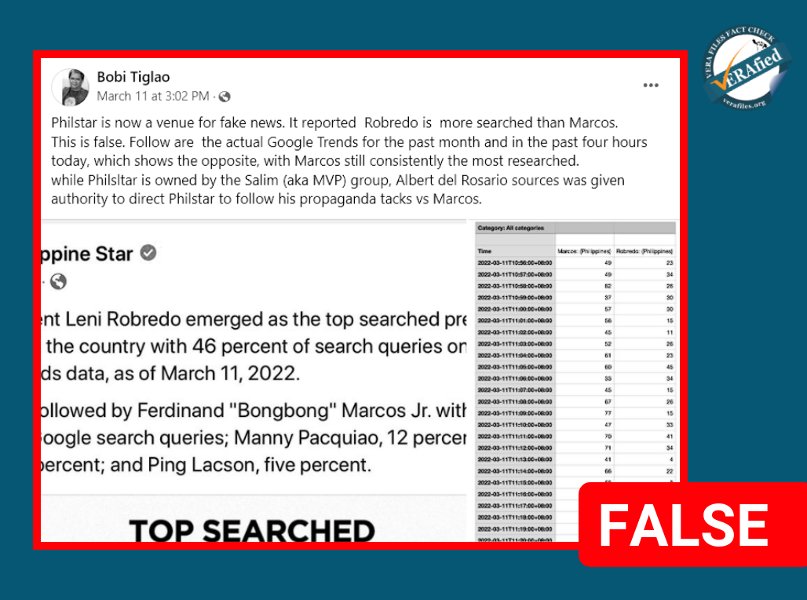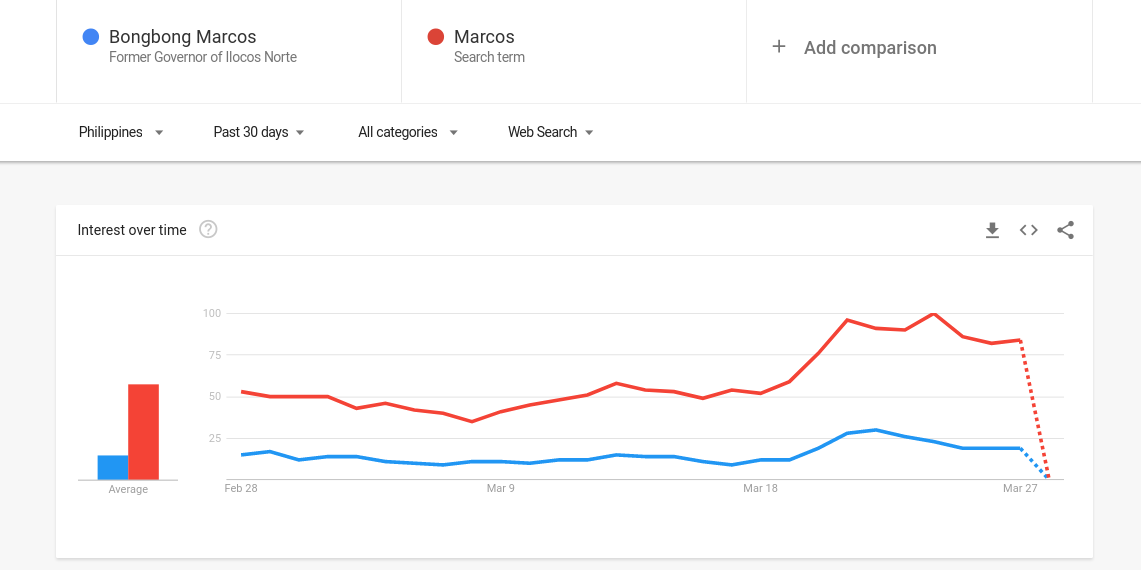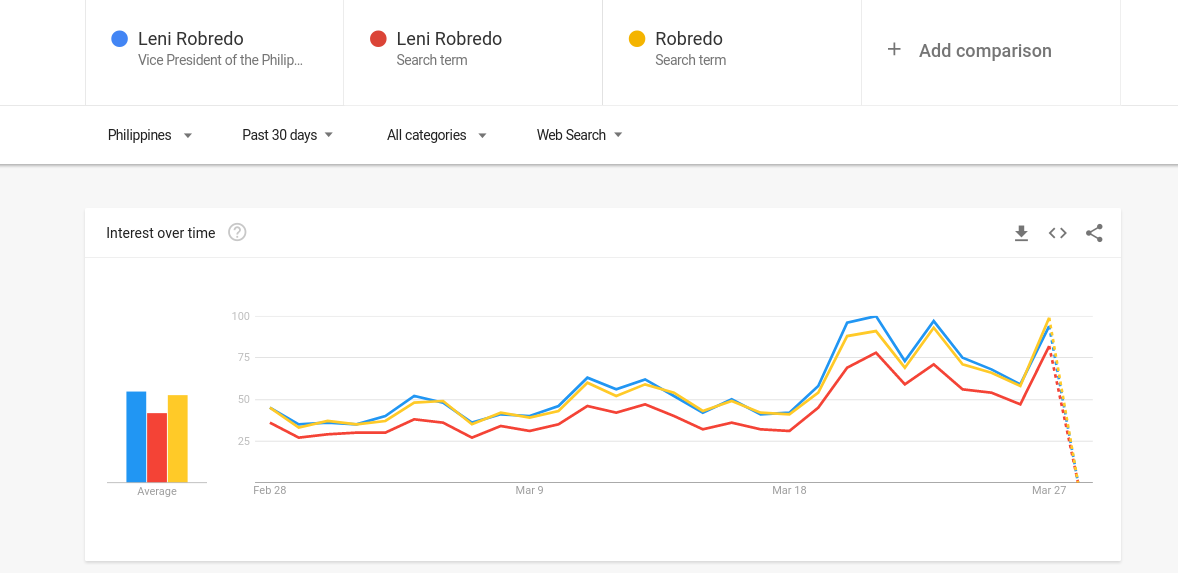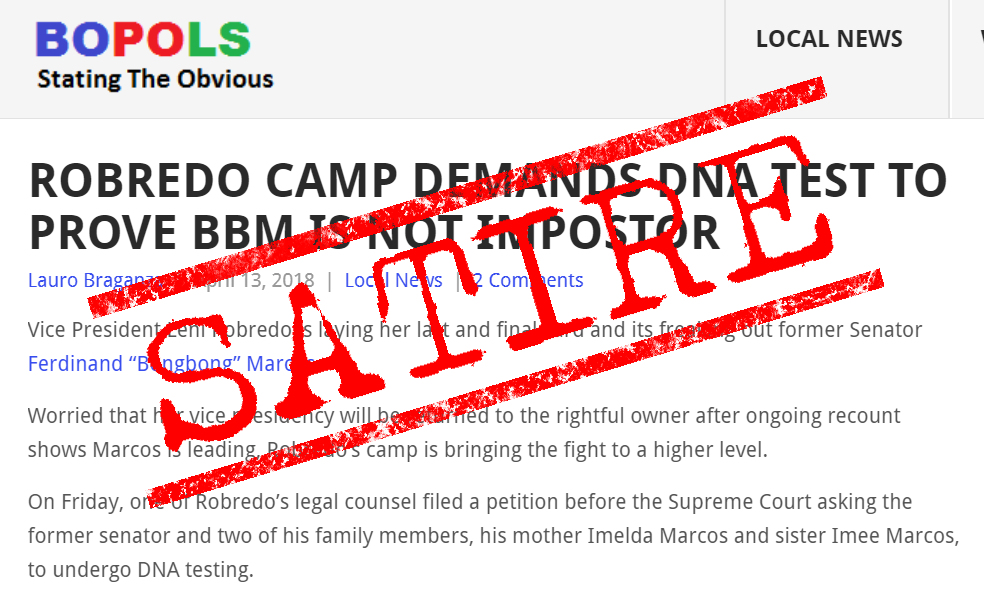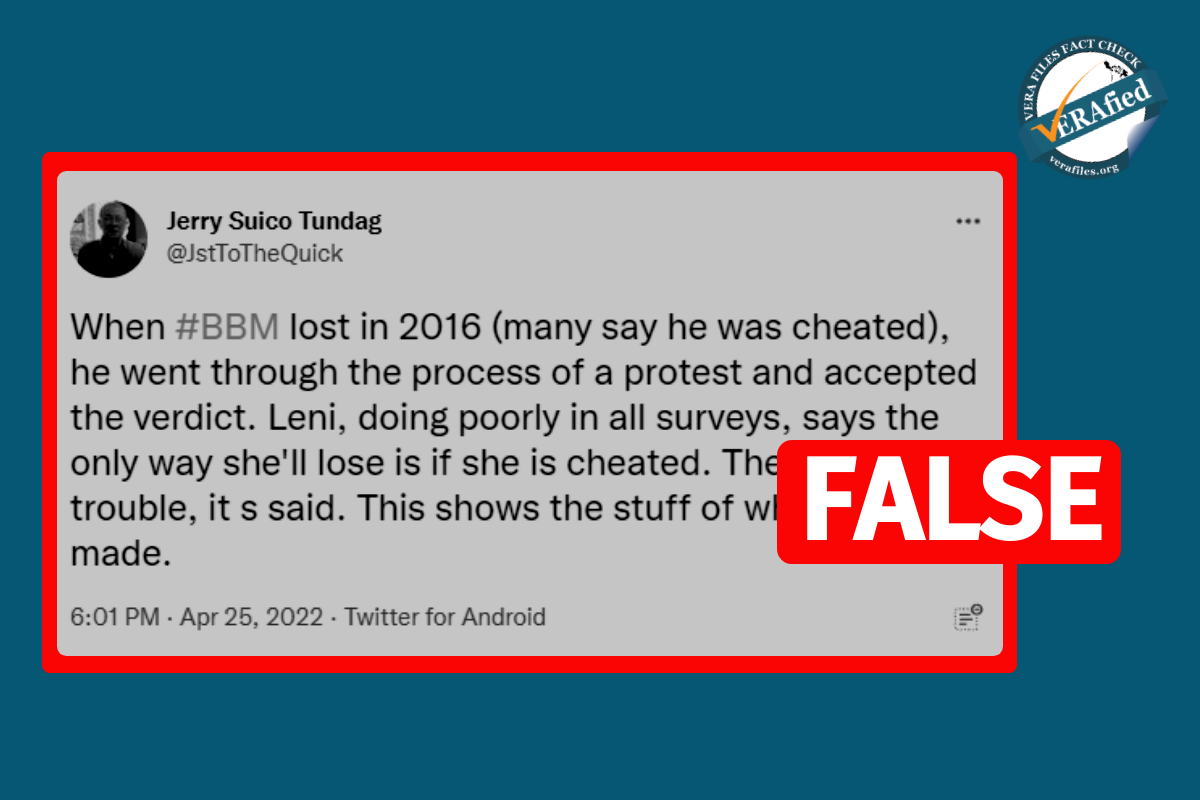The Manila Times columnist Rigoberto “Bobi” Tiglao falsely claimed that the Philippine Star erred in reporting that Vice President Leni Robredo was the most-searched presidential candidate on Google earlier this month.
Not true. To support this wrong claim, Tiglao used a data set different from the one used by Google Trends. The newspaper report based its data on Google.
STATEMENT
On the afternoon of March 11, Tiglao posted on his official Facebook (FB) account:
“Philstar is now a venue for fake news. It reported Robredo is more searched than Marcos. This is false.”
Source: Bobi Tiglao official FB account, “Philstar is now a venue for fake news…,”, March 11, 2022
Tiglao referred to a Philippine Star report published that day, which said Robredo was the top searched presidential candidate in the country then. It reported that searches for Robredo comprised 46% of queries among five presidential candidates, using data from Google Trends’ Philippine elections dashboard. Disputing this, Tiglao further wrote:
“Follow (sic) are the actual Google Trends for the past month and in the past four hours today, which shows the opposite, with Marcos still consistently the most researched.”
Tiglao attached screenshots of two Google Trends data comparisons for the terms “Marcos” and “Robredo,” which showed per-minute data from 10:56 a.m. to 11:35 a.m. on March 11, and per-day data from Feb. 4 to March 9.
Minutes later, Tiglao claimed in another FB post that the Philippine Star again spread “fake news” and this time compared search interests across 17 Philippine regions.
Tiglao showed search interest for the terms “Robredo” and “Marcos” covering the period of Feb. 11 to March 11. Marcos supposedly fared better in this comparison across all regions.
On the other hand, an unofficial visualization of Google Trends data from a March 9 opinion column on the Star – which cited data from a different period, Feb. 5 to March 2 – showed Robredo performing better.
In response to Tiglao’s first post, a netizen said the columnist may have looked at different parameters. Others accused the Philippine Star of being paid and for spreading pro-Robredo propaganda.
FACT
Tiglao is incorrect. The data he posted used “search terms,” while Google Trends, as cited by the Philippine Star report, uses “topics” dedicated to specific presidential candidates. Interest for terms and topics are measured differently by Google.
According to Google, search “terms” are words or phrases entered into Google’s search engine, while “topics” cover a group of search terms about a specific concept.
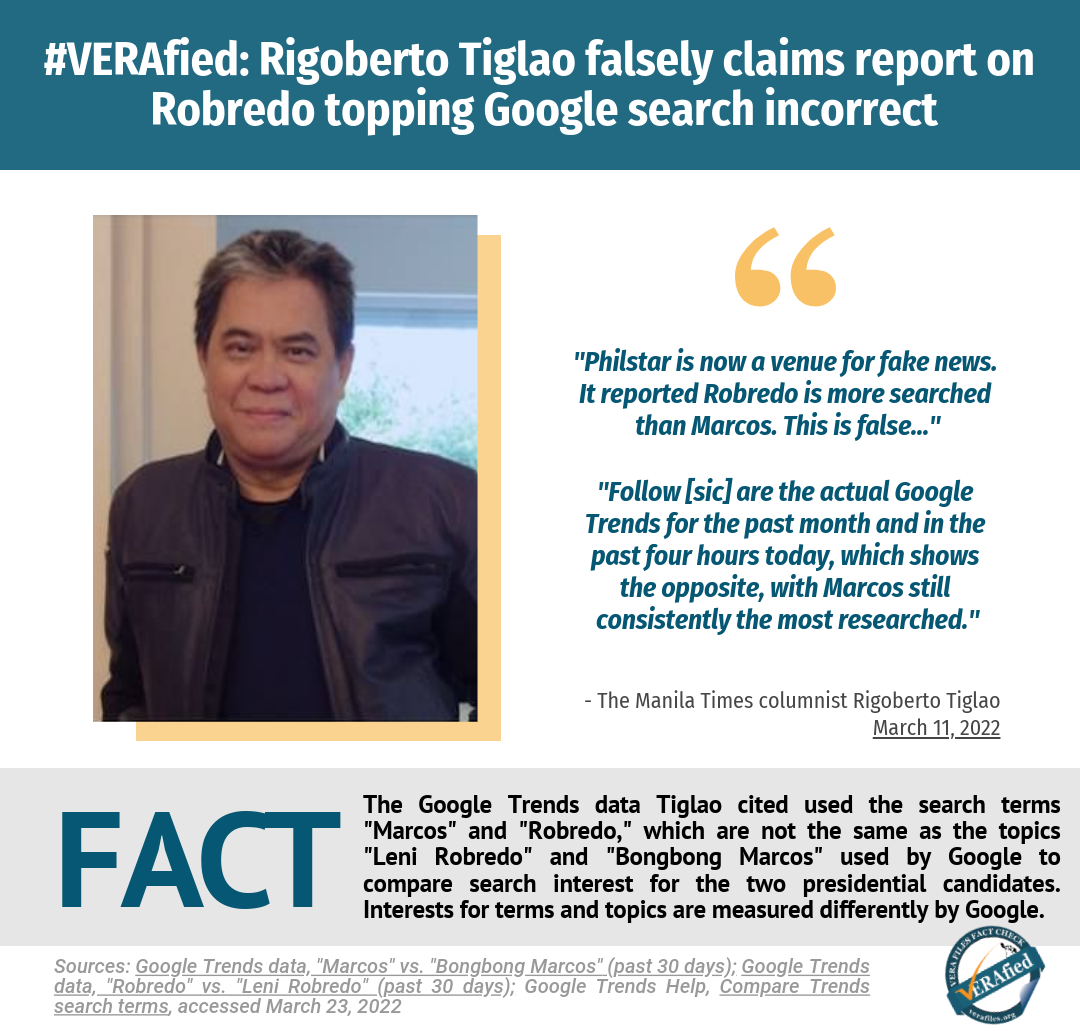
For instance, the search terms “Marcos” and “Robredo” may provide results related to the Marcos or Robredo family and are not limited to the candidates themselves.
Meanwhile, the topics “Leni Robredo” and “Bongbong Marcos,” prompt Google search to pull up information about the presidential candidates.
Click on the photo to see full comparison
Data from Google Trends for the past 30 days showed that the topic “Leni Robredo” (in blue) and the search terms “leni robredo” and “robredo” (in red and yellow) all have different search interest trends; hence it is incorrect to consider terms and topics as one and the same.
Click on the photo to see full comparison
Google News Initiative explains search interest as a percentage of searches for a specific topic or search term compared to all searches done for a particular time and location. Rated on a scale of 0-100, it does not measure the actual number of searches made for a topic.
It is not a scientific poll, and neither does it reflect who is “popular” or “winning,” the Google Trends help page warned.
In the Google Trends data Tiglao presented, the use of search terms instead of topics to compare the search interest for presidential candidates resulted in an altogether different conclusion compared to what appears on Google’s Philippine Elections dashboard.
Based on Google Trends data that VERA Files Fact Check obtained from Google, the topic “Leni Robredo” fared higher in search results than “Bongbong Marcos.” It applied to timeframes spanning from Feb. 4 to March 9, and on March 11, from 10:56 a.m. to 11:35 a.m.
The data also shows that search interest for “Leni Robredo” (topic) was higher than for “Bongbong Marcos” (topic) across the Philippine regions from Feb. 11 to March 11, thus contradicting Tiglao’s second FB post.
The columnist’s erroneous posts appeared two days after Google launched on March 9 a dedicated Search Trends page for the Philippines’ 2022 elections. The two posts garnered a combined total of 16,550 interactions.
